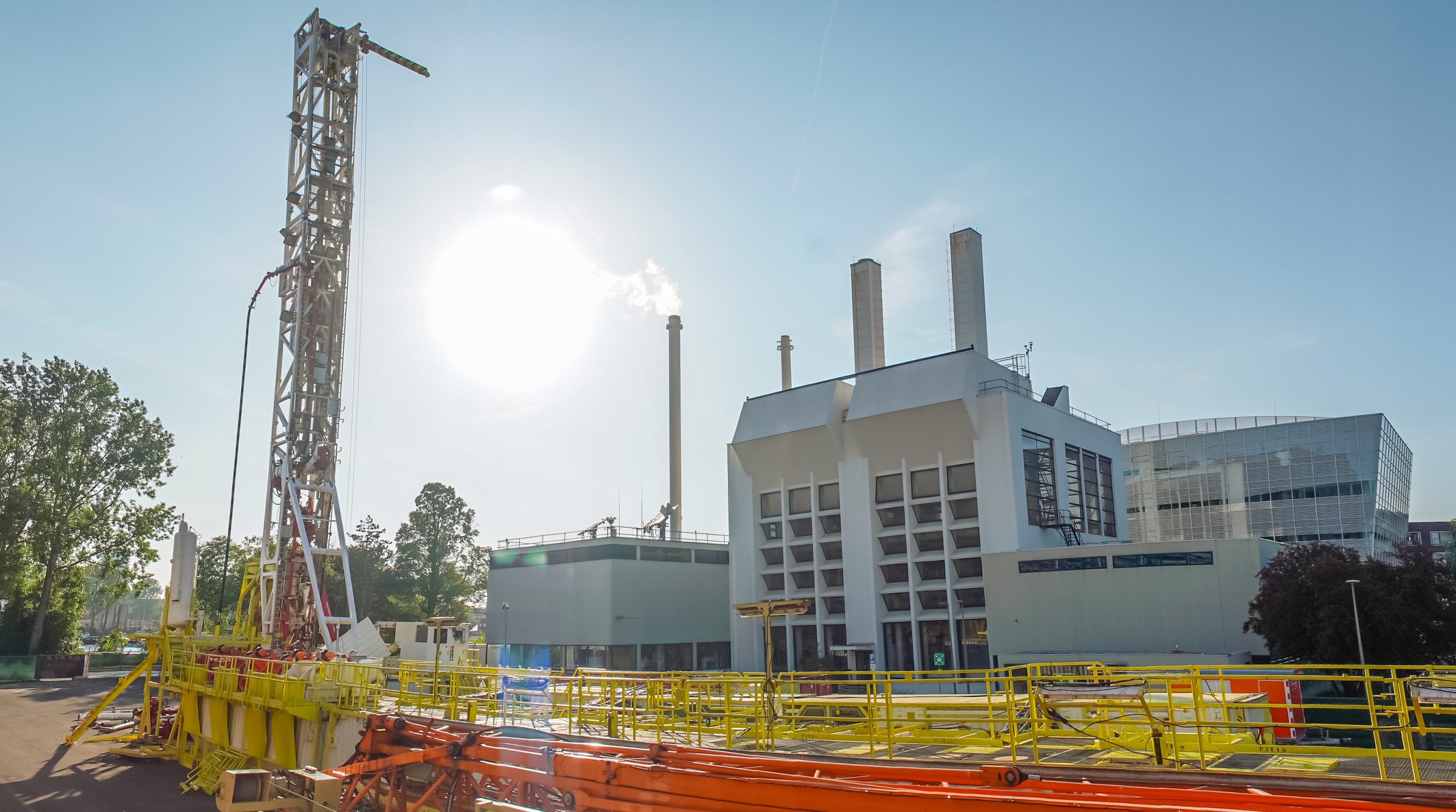Before TU Delft can start obtaining geothermal energy, the Geothermie Delft company must guarantee that the unusable well it drilled in October will not cause any problems. It also has to check if TU Delft’s research reactor could incur any problems from geothermal energy production.
Drilling on campus in June 2023. (Photo: Thijs van Reeuwijk)
Geothermie Delft has to jump some hurdles before the geothermal energy extraction can start. This was the conclusion of Hans Vijlbrief, the outgoing Undersecretary for Mining, in his Draft Decree (in Dutch) on 8 February. The Draft Decree precedes the permit that Geothermie Delft needs to start the geothermal energy production. The Decree shows that the Dutch State Supervision of Mines (SSM) has several questions regarding the permit.
In part, the questions arise from the new Mining Act that was enforced in June 2023. The Act, which the SSM refers to in its annual plan, contains new regulations for geothermal projects such as the one on the TU Delft campus.
Redundant borehole
But SSM’s questions are also related to an incident that the regulatory body believes could lead to undesirable flows between layers of earth underground. When the geothermal boreholes were drilled on the TU Delft campus in October 2023, one of the boreholes became unusuable, the Draft Decree states.
The Omroep Delft (in Dutch) news service writes that a drill bit got stuck at 1,240 metres deep in this ‘mother borehole’ and could not be moved. Documents on the website (in Dutch) of the Ministry of Economic Affairs and Climate Policy confirm this. Geothermie Delft –a partnership between TU Delft, Shell, Aardyn and EBN – drilled a so-called sidetrack well about 100 metres to the south east of the original well.
The stuck drill bit meant that the well could not be closed with cement, as is required by the Mining Act. This means that there is a hole underground which the SSM believes may lead to water flows between different layers of earth underground.
Nuclear reactor
The regulatory body wants Geothermie Delft to prove that the layer is sufficiently sealed before the geothermal energy extraction starts. The documentation also shows that the Undersecretary requires more measurements to be taken and models created before extraction starts. He also requires Geothermie Delft to check whether TU Delft’s nuclear research reactor could incur any damage through geothermal energy.
Further, the documentation shows that the SSM considers Geothermie Delft’s calculations regarding the potential vibrations and findings unclear. In its recommendations (in Dutch), the SSM estimates that the chance of earthquakes caused by the geothermal energy extraction is ‘not negligible’. Geothermie Delft had previously estimated the chance as very low. SSM thus argues for Geothermie Delft guaranteeing acceptable risk during extraction. Vijlbrief shares this opinion, but does not set any firm conditions.
The well on campus should heat TU Delft’s buildings and 5,000 homes in Delft in the future. The drilling started in the summer of 2023 and has now been completed.
Information evening
Anyone wishing for more information about this project and its effects on the city of Delft and the TU Delft campus may attend the information evening (link in Dutch) that the Ministry of Economic Affairs and Climate will hold at the Faculty of Civil Engineering and Geosciences on 5 March. Geothermal Delft, SSM, TU Delft, TNO and the municipalities involved will be present to answer questions on the Draft Decree.





Comments are closed.